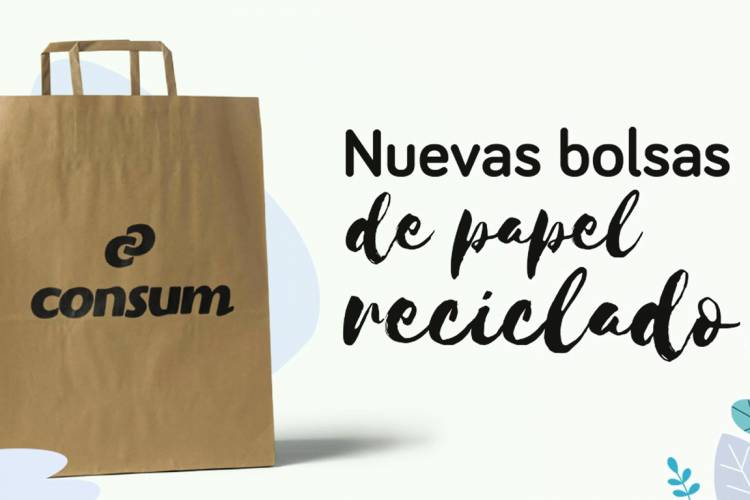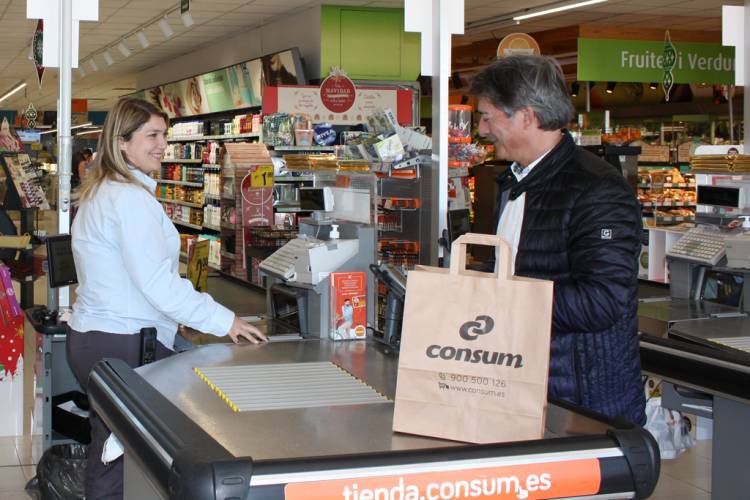Paper bags, recycle!
In Spain, more than 230 shopping bags are stillconsumed per inhabitant per year.
IT’S ECO, IT’S LOGICAL
Share

Only 10% of the bags are recycled in the yellow container, 65% are re-used as rubbish bags and 20% are collected on beaches and woodlands, turning the remaining 5% into deadly traps for existing fauna.
Therefore, the National Waste Plan has targeted a 30% reduction of plastic bags by 2020 and a progressive ban on providing free bags.
Ecological bags: types
• Biodegradable bags: Traditional plastic bags take decades or even centuries to degrade. However, biodegradable bags, made from plant products such as cereal starch, start disintegrating 18 months after their date of manufacture.
• Reusable bags: Whether they are made of cotton, fabric or raffia, the aim of reusable bags is precisely that they can be used on several occasions. Some experts point out that reusable bags can replace up to 400 single-use plastic bags.
• Paper bags: Paper bags are an excellent alternative to plastic bags and can be very durable:
- They decompose in only a few months.
- Their recycling process is relatively simple.
- They can be reused by the user several times.
Reusable bags can replace up to 400 single-use plastic bags.
Reusable bags: 9 tips to keep them better
One of the main problems found when using reusable bags is cross contamination. Just as cleaning the kitchen is of no use to us if we then prepare two different products on the same cutting board, reusable bags are not useful if we mix fresh vegetables with meat in the same bag, or with cleaning products, for example.
To avoid unnecessary risks, follow these basic tips when using your shopping bags:
• Separates raw foods from prepared foods. Use different bags for meat, fish and fruit and vegetables. And if each raw food is also packed separately, that’s even better.
• Put all non-food products: cleaning products, books, batteries, etc. in one bag.
• Do not change the use of bags when you go shopping on another day. To avoid errors, mark out the use of each of them with different labels or colours that can remind you of their specific use.
• Avoid storing the bags for a long time in the trunk of the car, especially in summer.
• Always inspect the bags after use to make sure there are no stains or to ensure that a product has not leaked.
• However reusable it might be, it is not recommended to extend the use of a bag for too long.
• Wash cloth bags periodically in the washing machine, even if they do not have any visible stains. And always store them when they are completely dry.
• Avoid storing bags near chemicals or contaminants.
• In summer, take extreme precautions with fresh produce and always use special cold bags, while separating processed foods from fresh ones.

In Consum we reuse
Consum has several alternatives within its range of reusable bags:
• Reusable shopping bags: available for 2 and 5 centimes depending on the size. These new bags are made of a single material, i.e. they are fully recyclable and must be deposited in the yellow plastic container.
• Recycled paper bags: made with 30% recycled paper and 70% FSC (Forest Stewardship Council) virgin paper that certifies and guarantees that the product comes from sustainable forests,these bags are provided for a cost of 10 centimes.
• Reusable raffia bag: large and very resistant, available in stores, priced at 60 centimes.






